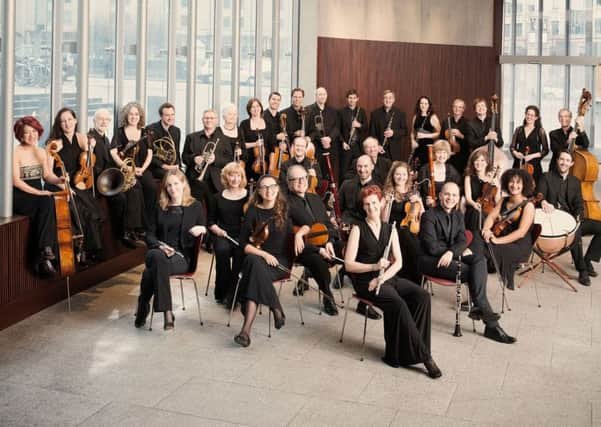Music reviews: SCO / Macmillan at 60 | RSNO / Norrington conducts Schumann


SCO / Macmillan at 60, City Halls, Glasgow ****
RSNO / Norrington conducts Schumann, Glasgow Royal Concert Hall *****
The SCO were celebrating Sir James MacMillan’s 60th birthday year (he doesn’t actually get his bus pass till July) with the composer conducting two early benchmark works: his percussion concerto Veni, Veni Emmanuel: and the choral masterpiece Seven Last Words from the Cross featuring the SCO Chorus. Both were written for chamber ensembles (the SCO and BT Ensemble/Cappella Nova respectively), but are fundamentally wholesome symphonic fruit.
Advertisement
Hide AdAdvertisement
Hide AdThe RSNO’s focus was on Schumann, his Third and Fourth Symphonies, but not with the customary full-on symphonic forces. This was Schumann seen through the mischievous eyes of Sir Roger Norrington (he turns 85 in a couple of weeks), informed by the credible belief that the appropriate balance has to exist between strings and wind to let the music speak truthfully. A full string section requires doubled woodwind, ergo single wind equals minimum strings. He chose the more intimate option.
Norrington’s programme was electrifying. Seated on an office swivel chair, a little stiff with age, he reigned over his players like a benign grandee, offering the merest of gestures to indicate a shift in gear, transferring ownership to the players – the ethos of chamber music? – who responded with impulsive zeal.
The solid framework of the Fourth Symphony was injected with flashes of primary colour that lightened the load. And in the Third, Norrington’s insistence on non-vibrato “pure tone” from the strings gave rise to unexpectedly subliminal low-set textures. Francesca Dego’s solo performance in Mozart’s Violin Concerto No 4 was a masterclass in classical interpretation, crystalline precision and effortless musicianship. Her Ysaye encore was a knock-out.
The outstanding highlight of the SCO’s MacMillan programme was a gripping performance of the Seven Last Words that, despite the calculated risk of using the amateur SCO Chorus in choral writing that revels in complex dissonance and vicious extremes of tessitura, wrung out its full emotional fervour. Take those walloping repeated statements, divided by deafening silences, of “Woman, behold thy Son”, which is one of the most moving and memorable moments in all of MacMillan’s music, borne out of the simplest of musical techniques. Awesome.
This was the seismic conclusion to an evening in which the single tolling bell in Arvo Pärt’s Cantus in Memoriam Benjamin Britten acted as a hypnotic teaser to the final ecstatic ding-dong that ends Veni, Veni. The latter falls somewhere between theatre and ritual, the solo protagonist’s role – veteran interpreter Colin Currie presiding – dizzily itinerant, and ultimate procession to the rear-mounted tubular bells like a celebrant breaking bread at the high altar. If anything, the strings appeared undernourished. This performance needed more of them, or more from them. Or a symphony orchestra..? - Ken Walton